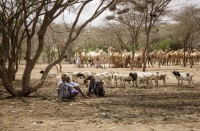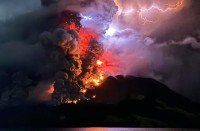https://youtu.be/II_X8QUeUEs
Vidoegraphics explaining the origins of the IS organisation, videographics by AFP TV
Islamic State took control of Iraq’s second largest city, Mosul, before declaring a caliphate across Iraq and Syria.
The Jihadist organisation and its leader, Abu Bakr alBaghdadi, took the world by surprise.
But the group has existed under various names for more than a decade, born during the USled invasion of Iraq which ousted Saddam Hussein in 2003.
Jordanian Abu Musab alZarqawi played a key role in the insurgency against USled forces, and the (mainly Shiite) politicians who seized power.
Zarqawi pledged allegiance to Osama bin Laden and established Al Qaeda in Iraq. His aim was to return Sunnis to power in Iraq and establish an Islamic state.
Zarqawi was killed in 2006. Al Qaeda in Iraq became the Islamic State in Iraq but lost momentum, rejected by local Sunni tribes.
The Syrian civil war revived the group, now under the leadership of Abu Bakr alBaghdadi, a veteran of the anti-American rebellion.
In 2013 he proposed a merger with the Al Nusra Front, active in Syria. But Al Nusra refused and in 2014 Al Qaeda severed links with his organization.
The split did little to slow the rapid ascent of Baghdadi and his new Islamic State in Iraq and Syria, renamed Islamic State later in the year.
The launch of a counteroffensive backed by international forces in August 2014 has reduced the size of socalled caliphate.
But IS continues to control large swathes of territory and key cities, like Mosul in Iraq and Raqa in Syria.
Trafficking oil and antiquities, extortion and a system of taxation has enabled IS to amass a substantial war chest. It has thousands of fighters, including exofficers from Saddam Hussein’s army and a large proportion of foreign fighters.
Spectacular attacks against its proclaimed enemies – both near and far away like France – together with gruesome footage of hostages being murdered are now hallmarks of IS tactics.







